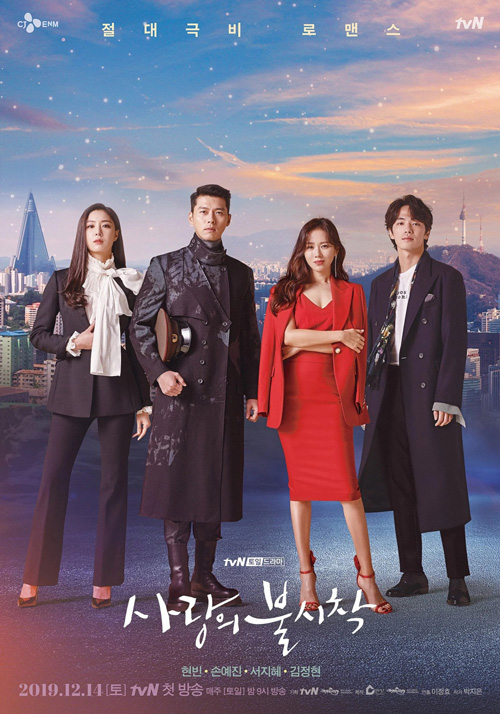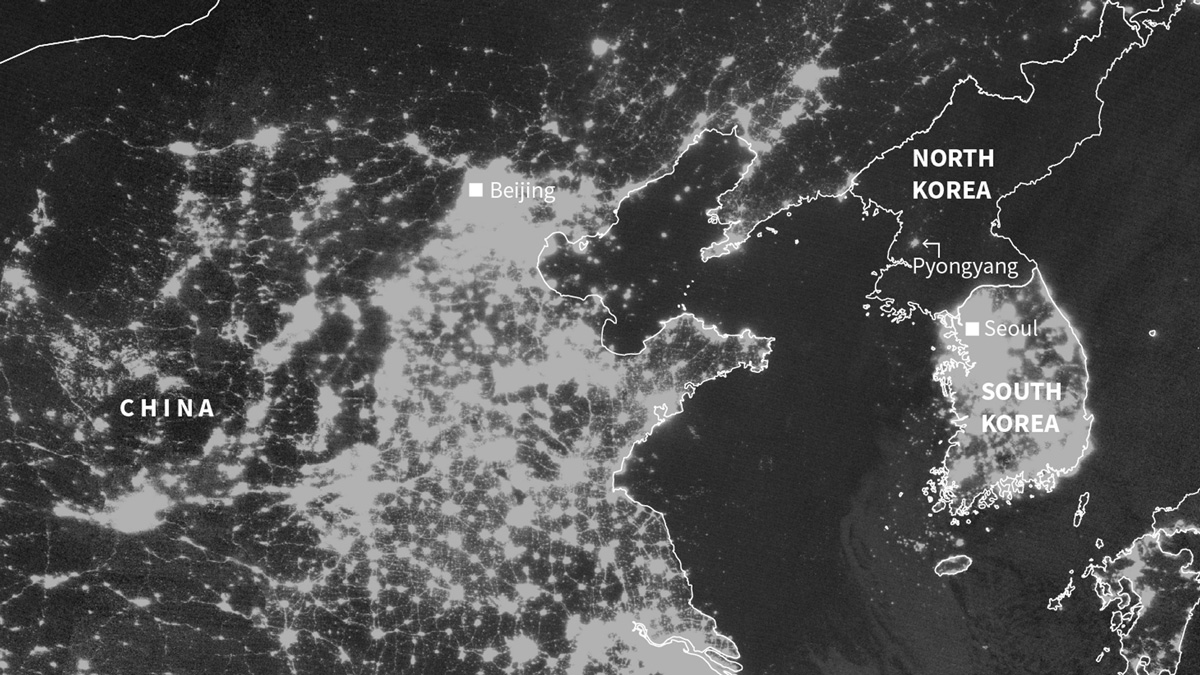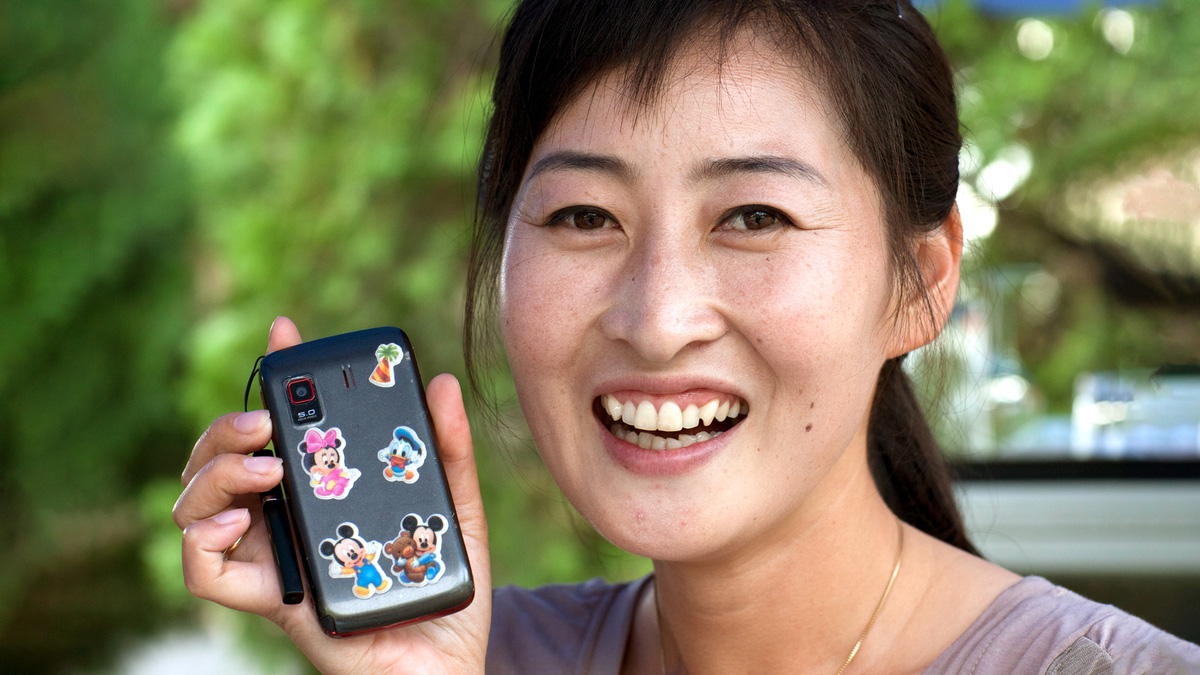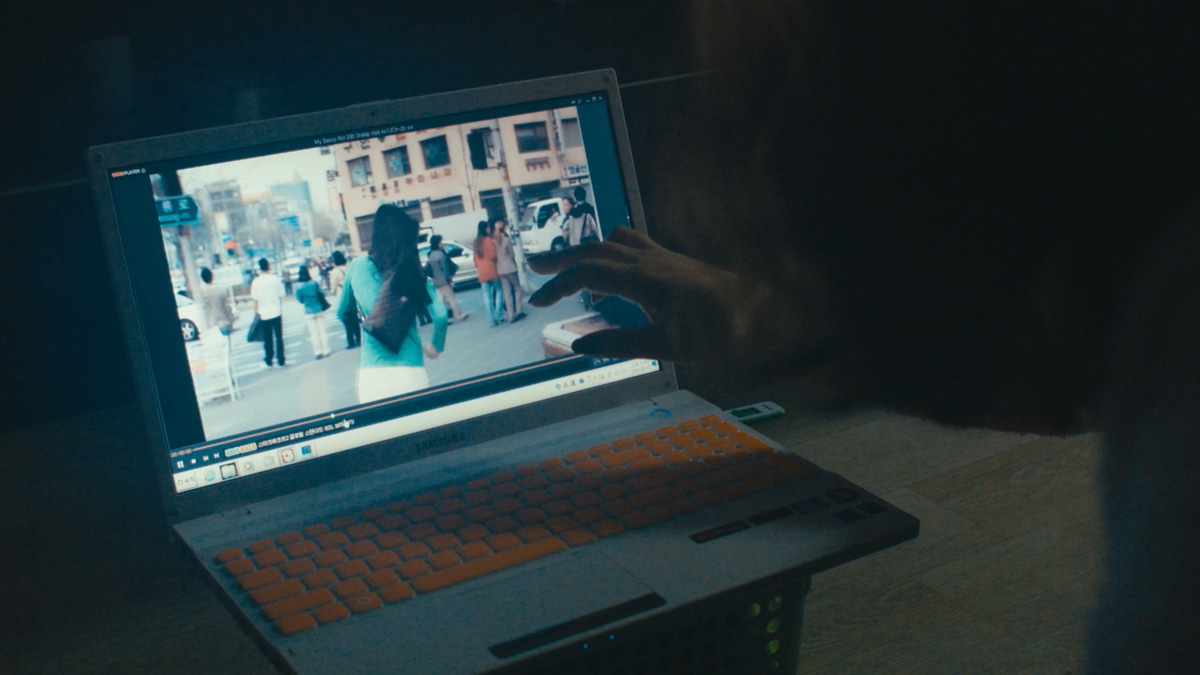A Day at Work with Ji Min and Hyun Kyung

Ji Min and Hyun Kyung recently started working at a food wrapping/delivery company that employs resettled North Koreans. The company buys organic potatoes, fruits, and vegetables from local farmers, and then wraps and delivers them to middle and high school cafeterias.
Ji Min and Hyun Kyung gave our resettlement coordinator Jihyun a tour of their workplace. Though it was their day off, they showed him how they would usually work so the photographer could take photos.

Jihyun: Thanks so much for showing us your workplace and demonstrating how you would usually work.
Ji Min: My pleasure. You know, I am usually not a big fan of getting my picture taken, especially since my family is still in North Korea. However, I am so happy to do this. If my story and pictures can help bring more attention to the North Korean issue so that LiNK will get more support and more North Korean people can achieve freedom through LiNK’s work, I feel like this is something I ought to do. You know, I always want to give back in return for what I have received. LiNK and LiNK’s supporters rescued me when I was in such a dangerous situation in China. I want more North Korean people to benefit from LiNK’s work.

Jihyun: What is the best thing that happened to you recently?
Ji Min: When it snowed for the first time this winter, I felt happy because snow reminds me of my hometown in North Korea. We get a lot of snow in North Korea compared to South Korea.
Recently, I got complimented by my boss for doing something well. You know, since I started working here, I have made some mistakes especially because I didn’t know some vegetables like parsley and broccoli. I had never seen them or heard of them until I started working here, so I got a bit discouraged during the first few weeks. And then, when no one else noticed that some expensive fruit was just sitting outside because someone forgot to put it onto a truck, I spotted the fruit on the ground and told my boss about it so we could save the fruit. If I hadn’t seen it, it would’ve been just thrown away or something. Yes, after all the mistakes I made, I did this so I got a compliment from my boss. It was so encouraging. You know what? No matter how old you are, getting a compliment is still very good (laughs).

Jihyun: What was your biggest challenge in North Korea?
Ji Min: Besides not having enough food and clothes, I really didn’t like that human rights and freedom of speech didn’t exist in North Korea. I could just get by with not having enough food and clothes, but I couldn’t stand my rights and freedom being taken away by the North Korean regime.
Hyun Kyung: I didn’t like the brutality of the North Korean regime. They cruelly punished people who said a single word against the regime. It was so scary.

Jihyun: What's your biggest challenge in South Korea?
Ji Min: I know that not every South Korean person is like this, but there are some South Korean people who have negative stereotypes and prejudices about people from North Korea like me. They sometimes treat me and other North Koreans like second-class citizens, looking down on us. I get very discouraged when that happens to me or other North Koreans.

Hyun Kyung: I am always concerned about my children left in North Korea. It is very difficult to call them, even through brokers, these days. I would never want to think anything about North Korea if my children were with me in South Korea. It is very painful not being with them and not being able to hear their voices on the phone. When I get so sad because of my children, I try to not think about them by working hard. Fortunately, I like what I do at my workplace, so it helps.
Ji Min: I miss my family too. After I came to South Korea, I realized how happy it was just to be with my family looking at their faces whether or not we had enough food or clothes back in North Korea.
Hyun Kyung: Whenever I am having a hard time in South Korea, I tell myself that I shouldn't give up for my children. I must successfully resettle in South Korea, so I can bring them here as soon as possible.

Jihyun: What is it like living in freedom in South Korea?
Hyun Kyung: I am just so thankful for many things. I love the work I do here because it perfectly complements my personality and the way I work (smiling). Among all kinds of new freedoms I have now, I really appreciate the freedom of movement. I like that the public transportation system in South Korea is so good that I can easily go wherever I want.
Ji Min: It is like going from an extreme to the other extreme. My life has radically changed since I came to South Korea. Now, I have freedom and rights I can enjoy.
A funny thing is that back in North Korea even the North Korean constitution states that the North Korean people have freedom and rights, but in real life there is no freedom and rights in the country.

Jihyun: What is something that you started to do in South Korea that you never did before?
Ji Min: I never even dreamed of driving a car in North Korea and after I came to South Korea I got a driver’s license. It feels so good whenever I get to drive a company truck. I always ask myself, “If I was still in North Korea, would I ever be able to drive?”

Jihyun: What should people do in order to remove the stereotypes/prejudices toward North Koreans?
Ji Min: There should be more proper education about North Korea in schools in South Korea. Especially younger South Korean people don’t know about North Korea and North Korean people. I think that is because students in South Korea don’t learn about North Korea and the people properly. Also the students need to know how to differentiate the North Korean regime and the people.
The lack of education on North Korea causes a lot of misunderstanding and indifference toward the North Korean issue and the people. I know that some South Koreans don’t even welcome resettled North Koreans here like me. This is very concerning. I think many South Koreans see reunification and the North Korean issue only as economic issues. They think that reunifying with North Korea and having more resettled North Korean refugees in South Korea won’t be beneficial for them.

Jihyun: What advice would you give to a friend who just arrived in South Korea?
Ji Min: You might get overwhelmed by so many new things and different kinds of jobs you can choose from in South Korea. Try to evaluate yourself (things like your experience, abilities and family situation) from an objective perspective and then choose what you want to do. If you start working, try to work at job as long as possible. Don’t quit your job too quickly.
Hyun Kyung: Yes, I agree! Don’t change jobs too often.

Jihyun: What are your hopes for the new year?
Hyun Kyung: Reunification! Or at least opening up of the North Korean society so I can see my children. I believe if the society opens up, the living conditions of the people in the country will get better.
Ji Min: Realistically, I hope I can work at my current company as long as possible without too much trouble. I hope both me and my company will do well next year.
And…yes, I hope I can see my children somehow. I really want to see them. I really do.
Help other North Korean refugees escape China and resettle successfully by donating to our life-changing programs. Donate today!
Foreign Media in North Korea - How Kpop is Challenging the Regime
Movies, TV shows, and music hold power. They’re a way for us to connect through common experiences, reckon with different sides of humanity, and revel in the beauty of being here at all. They transport us to another time and place- perhaps one of our imaginations- and most importantly, allow us to dream and imagine a limitless future.

In recent years, South Korean media and entertainment has gained international recognition. People like Hyun Bin and Son Yejin, the stars of popular Korean drama Crash Landing on You, have become household names, while Parasite swept the 2020 Academy Awards and music from K-pop groups like BTS are charting globally.
Meanwhile, just across the border, North Korea remains one of the most closed societies in the world. Yet even in the “hermit kingdom,” foreign media is accelerating empowerment of the people and change within the country!
Forced Isolation and the Regime’s Information Monopoly
The North Korean government has maintained power for decades through a system of imposed isolation, relentless indoctrination, and brutal repression. A complete monopoly on information and ideas within the country has been key- outside media threatens to challenge the legitimacy of their propaganda, and by extension, their control.
The 2014 United Nations Commission of Inquiry on Human Rights in North Korea reported an almost complete denial of the right to freedom of thought, conscience, and religion as well as of the rights to freedom of speech, opinion, expression, and association.

The regime employs a range of strategies to enforce information control:
- Restricting movement across borders and within the country
- Random house searches
- Severe punishment, including public executions, to deter foreign media consumption and sharing
- Sophisticated digital surveillance
- Jamming phone signals and locating users through signal triangulation
- Mobile OS file signature system that only permits government-approved apps and files
The Spread of Foreign Media
Despite this isolation and unparalleled internal restrictions, the North Korean people have been quietly changing their country from within, including through foreign media access. Through market activity and the movement of people and goods across the Chinese border, they have forced the gradual opening up of their society. Movies and music are smuggled into the country on USBs, SD and MicroSD cards, and small portable media players, offering illicit access to information from the outside world.
With lights off and windows shuttered, North Koreans will watch foreign media despite the risks. If all else fails, bribes are a way for people to reduce punishment if caught. Most North Korean police and government officials rely on bribes to survive, and some defectors complain that they are actually the biggest consumers of foreign media because they confiscate so much.

Information Technology in North Korea
Within North Korea, a broad range of information technologies are available, although they should be registered with authorities. Laptops and computers officially run on a government operating system, Red Star OS, while the North Korean intranet, Kwangmyong, is air-gapped from the internet and heavily surveilled. However, in practice, many North Koreans have non-networked devices used for games, editing software, watching videos, and to copy, delete and transfer media on removable devices.
Mobile phones are also common with approximately 6 million on the North Korean network, meaning roughly 1 in 4 people have one. These North Korean phones generally cannot make international calls and the operating system limits users to approved state media (programs have been developed to bypass this security). On the other hand, smuggled Chinese phones can be used in border regions on the Chinese network. These have been crucial for staying in touch with relatives who have escaped or defected, who often send back money and information from the outside world.

Radios are the only channel of foreign media and news available real-time across the country. While they should officially be registered and fixed to North Korean stations, it is relatively easy to tamper with radio sets to pick up foreign broadcasts. In border regions, some TVs can also pick up live programming from South Korea and China. Traditionally, TVs were connected to DVD players, but newer LCD televisions also have direct USB input ports.
How Foreign Media Changes Perceptions
Among foreign media, entertainment from South Korea is particularly attractive, produced in the same base language by people with the same ancestry. They contain glimpses of rich and free realities just across the border. In comparison, domestic North Korean media seems old-fashioned and disingenuous, designed to reinforce the regime’s ideologies.
As North Koreans learn more about life, freedom and prosperity in the outside world, and their own relative poverty, the regime’s ideology and control are eroded.

“At first you see the cars, apartment buildings, and markets and you think it must be a movie set. But the more you watch, there’s no way it can be just a set. If you watch one or two [movies] it always raises these doubts, and if you keep watching you know for sure. You realize how well South Koreans and other foreigners live.”
– Danbi, escaped North Korea in 2011
Empowered by foreign media, North Koreans are exploring their creativity and potential through everyday acts of resistance- using South Korean slang, copying fashion styles, and sharing pop culture references. In this culture war, Kim Jong-un has called for crackdowns on "unsavory, individualistic, anti-socialist behavior" among young people to restrict freedom of expression.
Foreign media also facilitates shared acts of resistance. People will swap USB devices with trusted friends and neighbors, increasing confidence in one another through a symmetrical transaction. Some people may also watch and discuss movies and shows together, increasing the media’s subversive influence and creating social networks.
The Regime’s Response
During the pandemic, we’ve seen unprecedented levels of isolation and restrictions, closing off the country more than ever before. To buttress control, Kim Jong Un has simultaneously increased crackdowns and punishments on foreign media consumption. In December 2020, the “anti-reactionary thought law” made watching foreign media punishable by 15 years in a political prison camp.
While the situation is harrowing, the government’s extreme response underscores the power of foreign media. The regime recognizes that social changes driven by North Korean people are a threat to their authority and control in the long term.
Accelerating Foreign Media Access and Change
Moving forward, increasing access to outside information is one of the most effective ways to help the North Korean people and bring forward change.
Information and technology support for North Korean people has historically been an under-utilized and under-invested strategy. LiNK Labs is our area of work focused on this opportunity- we’re developing technologies, networks, and content to empower North Korean people with access to information and ideas from the outside world.




